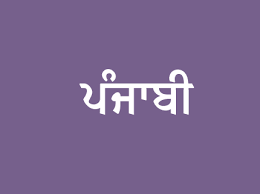Language/Panjabi/Vocabulary/Greetings-and-Introductions
| ◀️ Gurmukhi Matra — Previous Lesson | Next Lesson — Numbers and Time ▶️ |
As a Panjabi language teacher with over 20 years of teaching experience, I know that learning greetings and introductions is one of the most important things you need to know when learning a new language. It's a way to break the ice and start a conversation. It's also a sign of politeness and respect when interacting with people from different cultures. In this lesson, we will cover some basic Panjabi greetings, introductions, and how to ask for someone's name. By the end of this lesson, you will be able to greet someone in Panjabi and introduce yourself with confidence.
Consider exploring these related pages after completing this lesson: Health & Sports and Exercise.
Greetings
Let's start with some basic Panjabi greetings. These are some of the most common greetings used in Panjabi-speaking regions:
- Sat Sri Akal - Hello, and may God be with you.
- Namaste - Hello and welcome. This is a common greeting in India and is also used by Panjabi speakers.
- Kiven Ho? - How are you? This is a common way to greet someone in Panjabi.
- Ki Haal Hai? - How are things? A more casual way to ask someone how they are doing.
Note that 'Sat Sri Akal' is a religious greeting and is widely used by Panjabi speakers all over the world.
Introductions
Once you have greeted someone, it's time to introduce yourself. Here are some phrases that you can use to introduce yourself in Panjabi:
- Mera Naam ______ Hai - My name is ______. You can fill in the blank with your name.
- Main ______ Haan - I am ______. You can also fill in the blank with your name.
- Tusi Kehre Shehar ton haan? - Which city are you from? This is a common question to ask when meeting someone for the first time. You can answer this question by saying: Main ______ Shehar ton haan. (I am from ______ city).
Remember, when introducing yourself in Panjabi, use the formal "Main" instead of the informal "Mai".
Here is an example conversation between two people, Anjali and Manpreet, to help you understand how to use these phrases:
Anjali: Sat Sri Akal, ki haal hai? (Hello, how are you?) Manpreet: Sat Sri Akal, main theek haan, tuhada haal ki hai? (Hello, I am fine, how are you?) Anjali: Main theek haan, Sat Sri Akal, mera naam Anjali hai, tuhada naam ki hai? (I am fine, Hello, my name is Anjali, what is your name?) Manpreet: Mera naam Manpreet hai. Main Ludhiana toh haan. (My name is Manpreet. I am from Ludhiana.)
Note that in Panjabi, it is common to include honorifics when addressing someone who is older or in a position of authority. For example, if you are speaking to an elder or someone in a position of authority, you can add "Ji" at the end of their name to show respect.
Asking For Someone's Name
If someone hasn't introduced themselves yet or you missed their name, you can ask for their name in Panjabi. Here are some phrases that you can use:
- Tuhada Naam Ki Hai? - What is your name?
- Tusi Apna Naam Daso - Please tell me your name.
Remember to use the respectful form "Tusi" instead of the informal "Tu" when asking for someone's name.
Conclusion
Learning basic greetings and introductions is a great way to start learning Panjabi. By mastering the phrases in this lesson, you can greet someone in Panjabi, introduce yourself, and ask for someone's name. This will help you build confidence and make a good impression when interacting with Panjabi speakers. Remember to practice these phrases as much as you can so that they become natural to you.
I hope you found this lesson helpful. Don't forget to check out the other lessons in this course to further improve your Panjabi language skills.
Well done on mastering this lesson! Don't miss these related pages to expand your knowledge: How to say Good Bye? & Languages ਭਾਸ਼ਾਵਾਂ.
Other Lessons
- Time ਸਮਾ
- Languages ਭਾਸ਼ਾਵਾਂ
- How to say Good Bye?
- Food and Drinks
- How to Say Hello and Greetings
- Questions (ਸਵਾਲ)
- Adjectives
- Days ਦਿਨ
- Food
- Education
| ◀️ Gurmukhi Matra — Previous Lesson | Next Lesson — Numbers and Time ▶️ |

